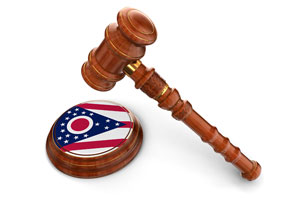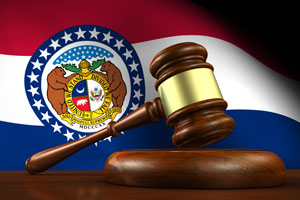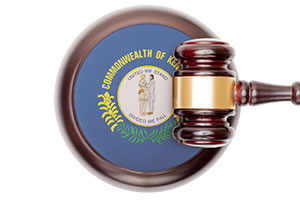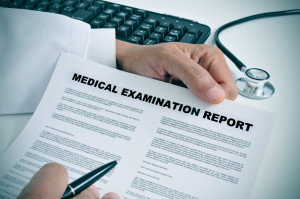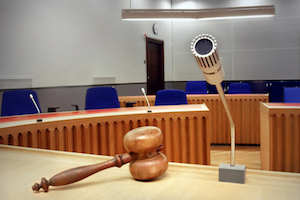With little analysis, state courts have routinely held that common scientific instruments used by law enforcement agencies should be presumed accurate and that their results should be admissible without expert testimony. For example, Wisconsin’s appellate courts have firmly followed the holding that “tests by recognized methods need not be proved for reliability in every case of violation. Examples, speedometer, breathalyzer, radar.”
The court presumed the accuracy of those devices without giving the matter much thought and without considering any expert evidence that they are, in fact, accurate. How to decide that a method is “recognized” is another question that the court neglected to answer.
Presuming the accuracy of a device makes life easier for prosecutors who would otherwise need to call an expert witness in each trial to explain why the device works as intended. Presumptions shift the burden to defendants to establish that the device did not produce a reliable result. Whether a system that requires each element of the offense to be proved beyond a reasonable doubt by the prosecution is undermined by presuming the accuracy of the prosecution’s evidence has been a source of contention for decades.
The presumption of accuracy sometimes overlooks doubtful assumptions made by the manufacturers of devices sold to law enforcement agencies. Breath testing devices, for example, generate results based on the assumption that the ratio of alcohol concentration in blood to alcohol concentration in breath is 2100:1. But that number is just an average. The actual ratio ranges from 1500:1 to 3000:1, depending on the person.
Since breath testing devices make the false assumption that everyone has the same blood to breath concentration of alcohol, breath testing devices produce blood alcohol results that are low for some people and high for others. The discrepancies have rarely troubled judges, who too often believe it is more important for prosecutors to present their cases quickly than to assure their convictions are based on accurate evidence.
Radar and Laser Devices
Radar and laser devices are commonly used to measure speed. A radar device shoots a radio signal at a moving vehicle and detects the signal when it bounces back to the device. The change in frequency of the signal as the vehicle moves is assumed to be proportional to the vehicle’s speed.
A laser device shoots a concentrated beam of light rather than a radio signal. It measures the time it takes for the reflected light to return to the device. By comparing multiple readings over time (usually less than a second), the device can calculate the speed at which the vehicle is moving.
Laser speed detection devices, sometimes known as Lidar, have grown increasingly popular with law enforcement agencies. While radar emits a wide beam that might capture a passing bird or a vehicle the operator did not intend to target, the narrow laser beam arguably reduces the risk of operator error.
Police officers are commonly presented in court as “expert operators” of radar and Lidar, which simply means they have been trained to use and calibrate the devices. They typically have little understanding of the scientific principles upon which the devices are based. Again, the presumption that the devices work as intended saves the prosecution from calling an expert witness to fill in the gaps in the officer’s knowledge.
Ohio Considers Admissibility of Lidar Device Results
The Ohio Supreme Court recently considered whether courts should take judicial notice of the accuracy of laser devices used to measure speed. A police officer in Brook Park stopped Joseph Rodojev for driving 15 mph over the speed limit.
The officer captured Rodojev’s speed on a Lidar device manufactured by Laser Technologies Inc. The company markets its TruSpeed products as “a laser speed device that any department can afford.”
The city prosecutor introduced the readout from the budget-saving device through the testimony of its operator. No expert testimony was introduced to establish the reliability of the device. The judge did not take judicial notice of its reliability.
The Ohio Supreme Court decided in 1958 that radar was based on valid scientific principles — in particular, the Doppler effect — and that radar results did not need to be supported by expert testimony. The state court of appeals decided that Lidar was similar to radar, notwithstanding that laser devices do not rely on the Doppler effect, and that the same result should therefore apply. Since the court’s lazy reasoning conflicted with the decision of another state appellate court, the state supreme court agreed to resolve the conflict.
Based largely on an explanatory law review article and court decisions in other states, the Ohio Supreme Court decided that Lidar devices are reliable. Since no expert ever testified in the case, it reached that conclusion without the benefit of expert assistance. The court did a favor for prosecutors by reducing their burden in speeding cases, but like other courts, it did so with remarkably little consideration of the science underlying the devices.
The court did note that Lidar results are still subject to challenge at trial, “including challenges involving the angle at which the officer held the device in relation to the targeted vehicle, the device’s accuracy-validation algorithms, the device’s calibration and maintenance schedule, and the officer’s qualifications to use the device.” Cross-examining the officer by comparing the officer’s actual use of the device to the procedure required by the device manufacturer’s manual is often a fruitful way to beat a speeding ticket. But those challenges, the court said, go to the weight of the evidence, not to Lidar’s reliability. The bottom line is that in Ohio and many other states, no expert testimony is required to admit Lidar results into evidence.


